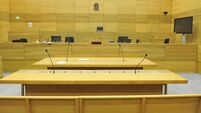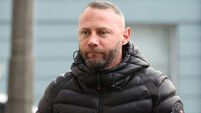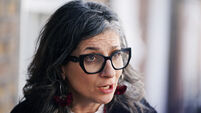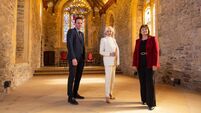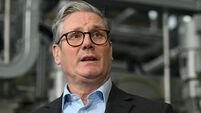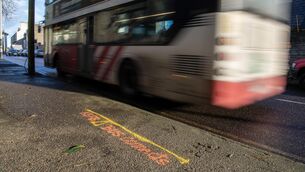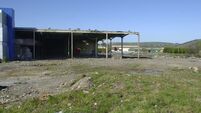Jennifer Horgan: 'Adolescence' reveals dangerous consequences of leaving children to their own devices

Netflix series ‘Adolescence’ artfully shows the impact that manosphere influencers can have on young boys and their attitude to female emancipation. Picture: Netflix
In a 2004 interview, a young Mark Zuckerberg is asked by a CNBC anchor about the magnitude of what he’s launching.
“It is impossible to tell,” he says, adding he’d hoped “the Facebook” might entice a few hundred users.
Good things can have dire consequences. Certainly, if we’re to believe the 19-year-old Zuckerberg, he had no idea what he and others were unleashing into our homes and schools, our playgrounds, carparks, streets.
Fast forward 21 years, when every parent with access to Netflix is feeling pummelled this week having watched — a wake-up call on the dangers of unrestricted access to social media.
If you haven’t seen it, the four-part series pulls no punches in revealing just how wrong we’re getting it in leaving our children (literally) to their own devices.
I struggled through most of the second episode — the school-based one. It brought a lot back, particularly the time I spent teaching in London. During my third year, a 15-year-old boy in my class was killed in a knife attack.
Watching the show, I saw him again, sitting in my classroom, telling me he’d decided to work hard for his GCSEs. He did. He sat and passed them. Only, he didn’t live long enough to collect his results.
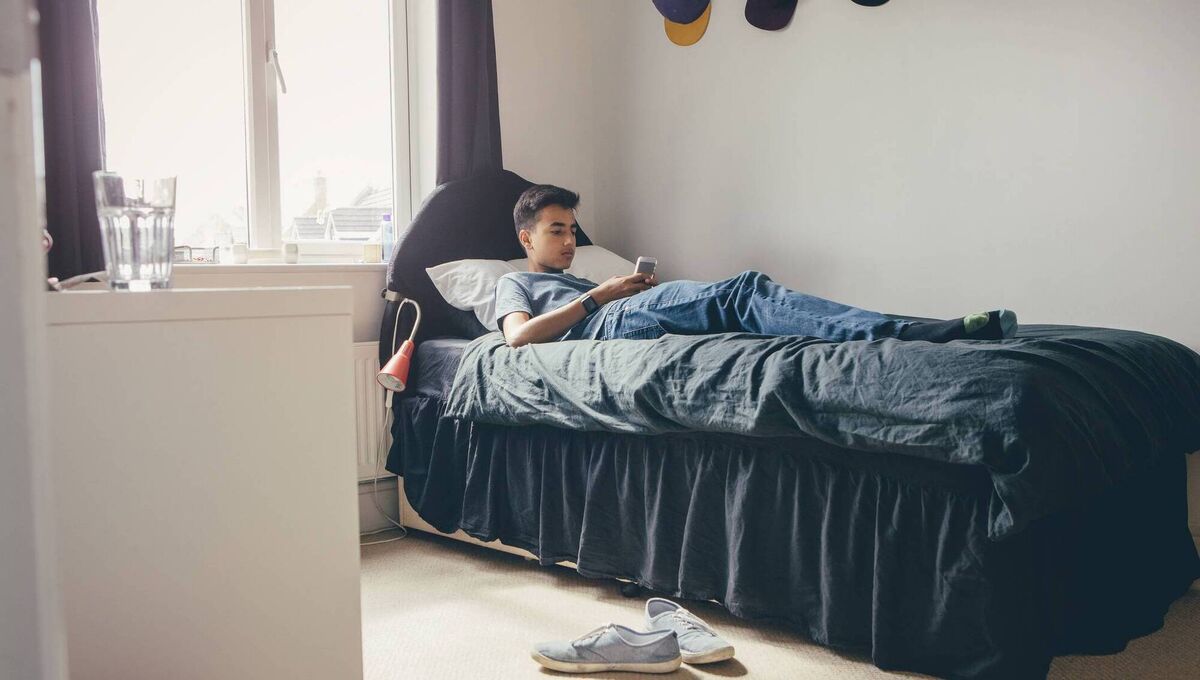
I was pregnant with my son when our headteacher told us he’d been murdered. My baby kicked and thrashed inside me, reacting to my racing heart. I will never forget that sense of meaningless loss — like falling into a bottomless, hopeless chasm.
Knife violence existed before social media, but rightly shows the part social media plays in manipulating young brains before they’ve developed.
Social media has soured so much. Take feminism — the belief that men and women are equal. Unquestionably, a positive force in the world, but the chatter around it online has had horrendous outcomes.
The worst offenders are manosphere influencers such as Andrew Tate, who prey on little boys as artfully shown in , making them perceive female emancipation as a slight on masculinity.
Other groups spread hate and fear too, most specifically around gender identity, by failing to see individuals as human beings.
Whatever your world views, it’s obvious that our little boys need to know they are as valued as our little girls. Conversely, our little girls need to know they are as valued as our little boys.
Are men more violent than women? Yes. Do women suffer disproportionately in our world? Yes. On that we should never be quiet.
The little boy in , Jamie, distrusts girls. He believes he must manipulate them into liking him, seeing himself as ugly and worthless. “80% of women,” he tells the psychologist, “are attracted to only 20% of men.” How has a positive effort to support both sexes become so darkly twisted into something else?
It is because good things can have dire consequences I guess, most especially when we isolate ourselves by living our lives online and away from one another. It really feels like we’re living in an age of so many unintended consequences.
There are plenty of examples. How air travel offered us the world and, in so doing, destroyed it. How music streaming gave us access to an exhaustive playlist and, at the same time, devalued the art form. Is every age the same, or is ours more extreme and more destructive?
Maybe it is inevitable. There are always ripples outwards, but the question is: To what extent can we find the good things we’ve lost without losing the good things we’ve gained?
It is a kind of filtering, and I think more Irish people are doing it well. I was down on positive collective action last week, but this week I’m seeing more of the good.
We’re leaving X, taking back control, talking about shows like , and engaging in movements like Gen Free — which calls for a safer online experience for children.
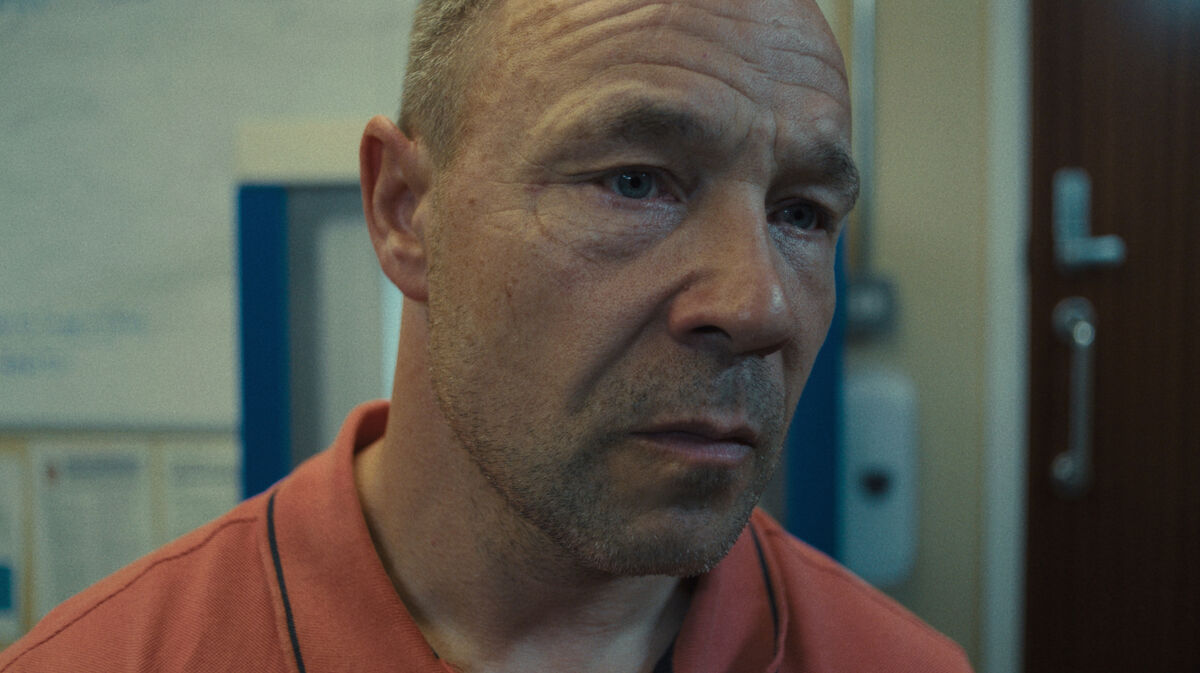
I was just thinking of all this when I got a message from a friend about how she’s changed her television viewing habits. She is sick of streaming — the bombardment of so many tailored choices, splintering her family into separate rooms, moods, and mindsets.
So, she’s told her children that a certain show is only available to watch at 7.30pm on a Saturday.
Now their weekend has an anchor, a fixed point around which they gather. They make popcorn. They bundle the blankets in, and they sit as a family of five.
Afterwards, they chat about the episode. It may as well be the 80s, a time when days of the week took on the tone and hue of specific television shows. From the pink giddiness of on Saturdays, to the darker, Sunday notes of playing us up to bed.
My friend is gifting communal memory back to her children, returning the joy of shared experience. Their Saturday night feels like it is live, something restricted to sport and politics these days.
People are investing not only in family, and in present communities, but in future ones too.
Take the replanting of trees. Thanks to our seemingly positive efforts to develop land, we are now down to 3% coverage by native trees. For a country that once had 80% tree coverage, the unintended consequences are massive — including increased air pollution, biodiversity loss, and soil erosion.
Last week, I joined the lengthy queue at Tramore Valley Park to collect free saplings organised by the City Council for National Tree Week.
The tree officer with Cork City Council, Thomas Kane, said at the event: “The balance of land ownership across the city is obviously weighted toward private ownership, with 80% of available land in this category. Giving away trees to the public is one way of promoting planting and increasing canopy cover in these areas.”
The council has planted 15,000 trees since 2021. A further 5,000 are projected to be planted this year.
The tree planting initiative doesn’t end with the giveaway, as over 20 community groups across the city are involved too.
Carried out in partnership with Coillte and the Tree Council of Ireland, this is the kind of collective action that gets me excited — all of us working together for a common good. In this context, social media is helping by connecting us and facilitating collaboration.
So much airtime today is given to boundary setting, toxic relationships, and our individual mental health. I wouldn’t dare knock it, but people are doing well to balance introspection with community and engagement.
Having collected my two saplings last week, I attended a fantastic workshop through MTU’s Creativity and Change programme.
Upstairs in their gorgeous building on Grand Parade, facilitator Hazel Hurley taught me about our native canopy. She explained that each letter in our ancient language, ogham, signifies a tree.
I think Ireland is growing and regrowing in a positive direction.
It’s not so much about “out with the old and in with the new” anymore. It’s about accepting change while preserving the good, and realising that most good happens in community — not isolation.
Episode four of depicts Jamie’s family struggling, completely isolated within their community. Neighbours either snub, mock, or spy on them. It’s a heaping of tragedy on top of tragedy. Would that happen here? I don’t know, but I really feel like our sense of community is growing stronger. We should be proud of that and of every little act of kindness.
In fact, according to a report released on Thursday, we are the 15th-happiest country in the world — rising two places since last year.
In a week of truly devastating, heart-sickening world news, it is good to hear. May we continue to rise up those ranks together.

